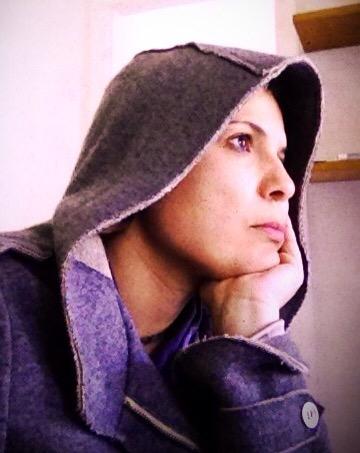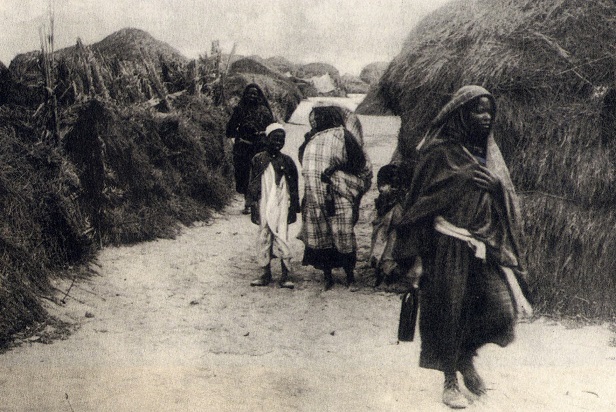Interview with longlisted author Najwa Binshatwan
15/02/2017

When did you begin writing The Slave Pens and where did the inspiration for it come from? Did the novel take long to write and where were you when you finished it?
I began writing The Slave Pens in 2006. I wrote something like a short story then stopped and began to think about starting from that story and embarking on a bigger work which would be a an imagined version of real life events. I took the name of an old quarter of Benghazi and began to imagine how it would have been nearly 200 years ago. There is no historical information or documentation that I could use as a starting point, apart from some photographs taken as the Italians entered Libya of the straw pens where the slaves lived with animals, and some land surveys. A friend had a photo of these pens and I began to reflect on it. It didn't show much, there were few details. I remember that I put in front of me on the computer screen, and as I contemplated it, I thought about filling it with the appropriate characters and their stories. During that long period when I was thinking about the picture, I wrote nothing, since I was busy with other things like studies and work.

In 2015, I had moved to Rome and one night in February I re-opened the The Slave Pens folder on my computer. The landlady had just asked me to vacate the premises and I was bewildered and sad. How would I ever finish this story when I didn't have a stable place of residence? I began to arrange the notes I found on the computer, then moved to Palermo to look for work and decided to open the folder there, and over the course of a year I finished the novel, before finding myself back in Rome at the end of the year.
So the The Slave Pens was written in two places facing the Mediterranean sea from opposite directions. It is a story involving the sea, and this is one of the strange co-incidences connected with the book. It is as if I went there just to write it. I wrote consistently for long hours, from the morning until the afternoon. It was a burning hot summer spent on the balcony and I had no money or work, not much food and many problems to do with my Italian residency. I was isolated and alone despite living with other women. Most of the time I was silent and only spoke when I had to, every two or three days.
I lived, thought and spoke continually with the The Slave Pens and its characters. When I wrote some parts of it, I found myself crying and then walking for hours to find release from its subtle effect on my spirit. During the last year of writing I didn't look at the picture which had been taken of the pens and I started to see the characters actually moving before me.
I finished it and sent the draft to the publisher, and after two months I received the agreement to publish it. It was the one joy I had during that very sad time.
How have readers and critics received it?
There are friends to whom I sent the manuscript of the novel to get a measure of its quality. They liked it and one of them even insisted that the novel dealt with 100 years of Libyan solitude, and of course I loved the wonderful allusion to Marquez.
After the novel was published, reactions reached me from different types of readers. Many liked it and were amazed by how it gripped them right to the end. I realised I had written 300 pages and it would be hard to hold onto a reader for the whole week it would take to read it. But when I asked readers how long they took, they would say "just a couple of days". I found this speed encouraging and it was the very opposite of the writing process, which was heavy in every sense of the word.
What is your next literary project after this novel?
My literary project after The Slave Pens is just to write. I hope that I can write full-time and leave the academic world once and for all. I do not write for any material benefit I may gain from it. I continue to write because it is everything to me. I have a project for a new novel which is different in subject and style. In fact I've started it and maybe the only thing I lack now is time and being settled in one place, rather than moving about constantly.
I'm drawn to the subject of the Italian Holocaust camps in Libya and am thinking of writing a novel about them. I know I will do it one day because I have collected some pictures and begun to reflect on them, but I hope that this reflection will not take the time which the picture took, from which The Slaves' Pens was born.
